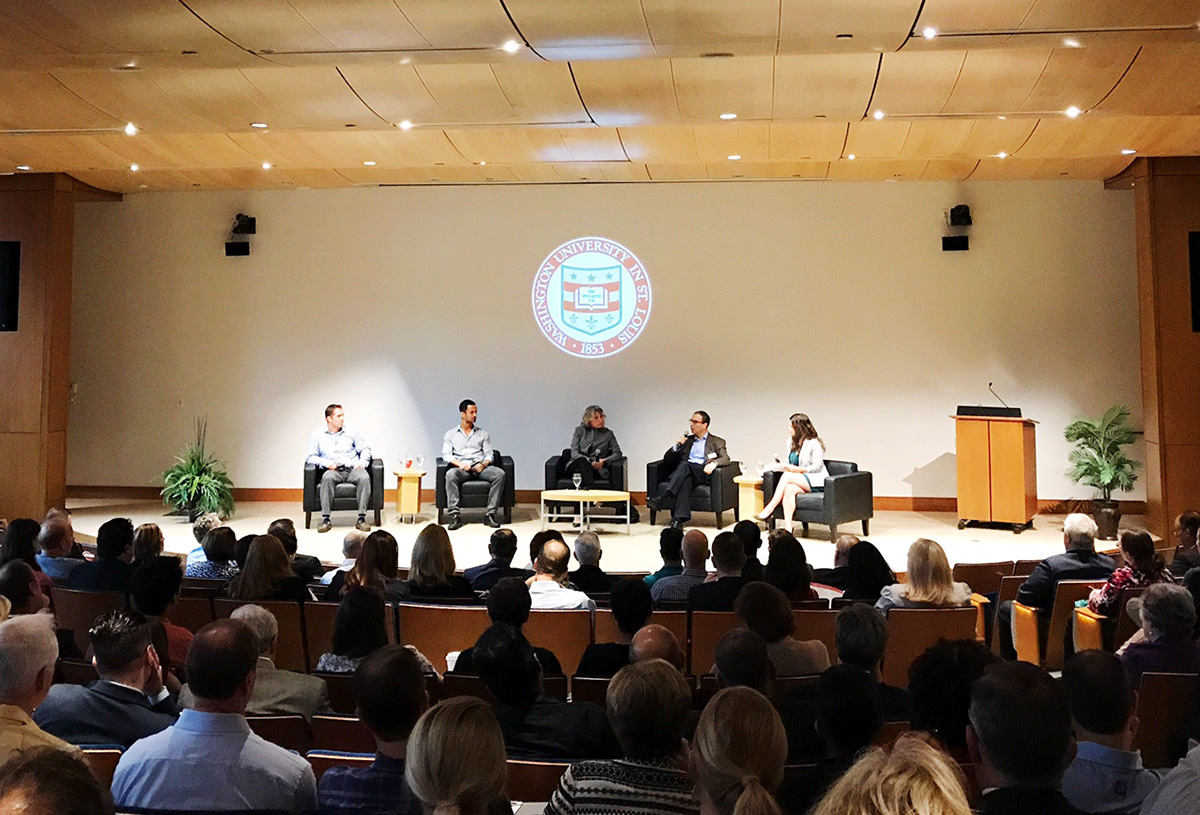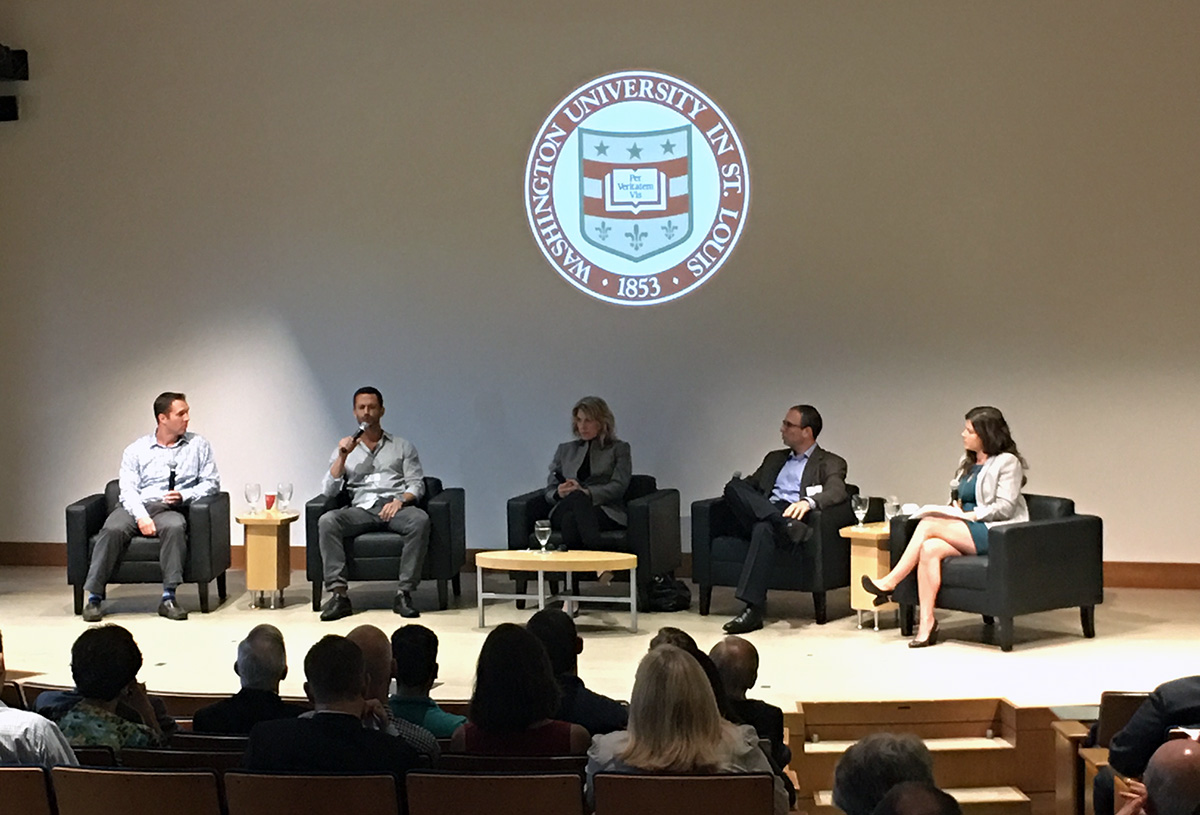Panel goes “behind the counter” of QSR industry
- October 10, 2017
- By WashU Olin Business School
- 3 minute read

Food is big business, so the Executive MBA program hosted a delicious panel to discuss what’s “behind the counter” at four different quick-serve restaurants (QSRs) and fast casual establishments. Moderated by food blogger Lauren DeSantis-Then, the panel featured two Executive MBA alums, Toby Warticovschi (Lion’s Choice) and Eric Benting (Chick-Fil-A) along with BSBA alum Oliver Kremer (Dos Toros) and Gail Kitsis (Crazy Bowls & Wraps).
The panel brought very different perspectives to the discussion. EMBA alum Eric Benting owns a single Chick-Fil-A, which is the typical ownership within the company. His motivation to drive sales is the potential to be chosen to open a second store. Dos Toros, on the other hand, has opened 14 restaurants in the NYC area over 9 years, modeling them after a specific taqueria cuisine that the founding brothers grew up with in California. Their strategy is to build in highly dense areas (such as tall, crowded office buildings) and hit their numbers during lunch. As they expand to new markets, such as Chicago, they will focus on many units within a handful of key markets—all with a dense walking population.

The morning kicked off with talk about supply chain and operations. Consumers don’t usually think about the business of food with respect to inputs and how the food gets to the restaurants. Yet ordering, inputs, waste, and throughput are a large piece of the restaurant puzzle. Three of the panelists spoke about the challenges of being in a business that uses only fresh (not frozen) inputs, making them vulnerable to varying consumer demand and pricing fluctuations of ingredients such as broccoli and avocados. The conversation moved to how technology has played a role regarding waste in the “back of the house.” For example, Chick-Fil-A now uses iPads to direct those on the line on how many patties and nuggets to batter and fry at any given point, which prevents food from sitting for too long. It’s a balancing act between being prepared and ready, but not having food sitting out and awaiting purchase for more than 5 minutes.
Technology is a hot topic among the restaurant professionals. All spoke about the role of tech—both in the kitchen, as well as the consumer-facing technology, such as mobile apps, drive-thrus, and online ordering. Get it right, and customers will eat at your restaurants more often and with a higher ring. Get it wrong, and they may not come back. Today’s consumers (millennials especially) are “on the run” and looking for time-saving measures. Yet many of the restaurant owners and operators spoke to the fact that their food is meant to be consumed within minutes of it being prepared, which doesn’t lend itself to pre-ordering and/or delivery. Most of the speakers agreed they did not want to get into the business of delivering, so they outsource this component – yet then lose control of the final experience.
The morning flew by leaving the standing room-only audience hungry for more insights on the business of food.
Don’t miss the next Executive MBA event. Be sure to check out upcoming EMBA webinars, panels, and information sessions.
Contact Us
For assistance in finding faculty experts, please contact Washington University Public Affairs.
Monday–Friday, 8:30 to 5 p.m.
Sara Savat, Senior News Director, Business and Social Sciences
314-935-9615
sara.savat@wustl.edu
Kurt Greenbaum,
Communications Director
314-935-7196
kgreenbaum@wustl.edu
